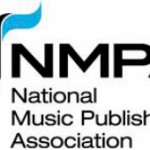 The music industry’s next bone to pick with content users and downloaders seems to be online lyrics, published on sites that aggregate this content for users. The National Music Publishers Association has filed a copyright infringement suit against two companies that publish lyrics online for profit. One of the companies is owned by MySpace co-founder Brad Greenspan.
The music industry’s next bone to pick with content users and downloaders seems to be online lyrics, published on sites that aggregate this content for users. The National Music Publishers Association has filed a copyright infringement suit against two companies that publish lyrics online for profit. One of the companies is owned by MySpace co-founder Brad Greenspan.
To be honest, I didn’t really see this one coming. There are plenty of sites that publish lyrics for free, and so maybe I underestimated the revenue potential in this area. Still, it reminds all content users of the dual nature of copyrights in music - the lyric copyright and the composition copyright. The former is usually overlooked. What makes this interesting is that, depending on the genre of music, the owner of the copyright in the lyrics may be a completely different owner than that of the composition. This is very typical in pop music and hip-hop, where the music composition (the “beat”) is crafted by one individual, and the lyrics are generally crafted by another (sometimes the artist). Meanwhile, in country music, a very polished group of songwriters’ in Nashville are depended on to write both for artists. This reminds me of an email I recently drafted to a friend of a client. The friend’s son was producing hip-hop music and was beginning to grab the attention of music industry types. The father wanted to understand the business model of the music industry, i.e., “what do I have to do to get little Charlie discovered and famous?” I wrote the following:
To premise the foregoing, I must tell you that I am not an agent. I am a corporate and intellectual property lawyer with experience working in the music industry. As I mentioned to you, my time in the industry was spent with Warner Brothers Music and Sony Music Publishing, both in Nashville, which follows a much different business model than other genres. Because I love (and miss) the music industry so much, I will explain it from a macro-view to you and your son:
Nashville, and country music, is the only genre of music (besides Pop) that still follows the traditional business model, in that there are certain funnels to the top that are facilitated only by and through big-name record labels and executives. You don’t hear about internet sensations in this genre. It is the only genre where labels still sign young talent and “mold” them for market. Country music is also unique because it depends completely on a songwriting market - there is a large songwriter’s network in Nashville represented by unions and publishers, from which record labels pick and choose ALL songs for its artists. Pop music is the only other similar business model in LA and NY. The emphasis in these markets is on the song, rather than the songwriter, allowing more songwriters to get a piece of the action.
15 years ago, the hip-hop business model was similar. Most of the talent was owned by a few labels (at the time - Interscope, Def Jam, Death Row). For whatever reason, rising hip-hop stars began to break off and start their own labels (Your son will know some of these - Bad Boy, Rockafella, Cash Money, Billionaire Boys Club). This was not only a smart move because they began retaining their own copyrights, but it was good for the industry because it fragmented the market, effectively decentralizing the “road to the top”, and allowed more music to reach consumers. This was the beginning of the end for the traditional business model for hip-hop.
The hip-hop market is so fragmented now that there are no traditional A&R (artist & repertoire) people or label execs at which one can point a finger and say, “if that person discovers me, I will make it big.” There are a few giants still alive - Def Jam, Bad Boy, and Young Money - each because a hip-hop star started the label and continues to run it backed by their own name and copyrights - Jay Z, P Diddy, and Lil Wayne, respectively. While these names and labels used to be “all there was”, the market is now saturated by “internet sensations”, or as I like to call them, marketing gurus. The internet is a beast, and the new business model in the music industry proves its possibilities. Your son will, or should, be familiar with names such as Soulja Boy (click for a good article on how he has used the internet to change the music industry) Asher Roth, and Mickey Factz. These now-icons never shopped their demos to anyone, nor signed a record deal (until after they had millions of fans) - they simply used internet social media very wisely. Their successes have caused record label execs to lose their jobs - they aren’t needed anymore.
The point that I am trying to make is that, 15 years ago I shopped my demo on a two-sided tape in manila packages with a cover letter to record label A&R personnel listed in industry publications. That model is gone. The internet - social media, mix tapes, ringtones, free music and distribution - is the model now. Social media is the true test - if you can gain a following big enough, someone will discover you. My advice to your son is to use the internet like a marketing campaign.
If, in fact, he is contacted by someone claiming to be a record label executive, be wary, and never sign away copyrights. It happens all too often. Music is worth nothing without the legal rights that attach to it. Before any internet marketing campaign commences, visit http://www.copyright.gov/eco/ and register your works. Your son technically owns his copyrights already, as a copyright legally arises upon the fixation of a series of original musical, spoken, or other sounds into some tangible medium. You can’t protect this right in court, however, without registration. Once registered, you are off and running rest assured that you own a protectable right. In hip-hop, because of sampling and other common practices, copyright issues can arise frequently.
 Ian McClure is a former corporate & securities and intellectual property law attorney with
Ian McClure is a former corporate & securities and intellectual property law attorney with  Trevor M. Blum is a former Associate in the Chicago-based, valuation practice group of Ocean Tomo, LLC., an intellectual property (IP) consultancy. Additionally, he provided instrumental research support to Intellectual Property Exchange International, Inc., an IP exchange start-up. Trevor holds a B.S. from Indiana University and is currently an MBA candidate at the University of Cambridge, focusing on international business and finance. His interests also include entrepreneurship, economics, and informational visualization. He enjoys running and cycling in his free time. Trevor seeks to bring a transnational business perspective to the blog.
Trevor M. Blum is a former Associate in the Chicago-based, valuation practice group of Ocean Tomo, LLC., an intellectual property (IP) consultancy. Additionally, he provided instrumental research support to Intellectual Property Exchange International, Inc., an IP exchange start-up. Trevor holds a B.S. from Indiana University and is currently an MBA candidate at the University of Cambridge, focusing on international business and finance. His interests also include entrepreneurship, economics, and informational visualization. He enjoys running and cycling in his free time. Trevor seeks to bring a transnational business perspective to the blog. 
No Comments, Comment or Ping
Reply to “Music Industry Targets Online Lyrics, and a Summary of the Music Industy’s Fragmented Business Model”